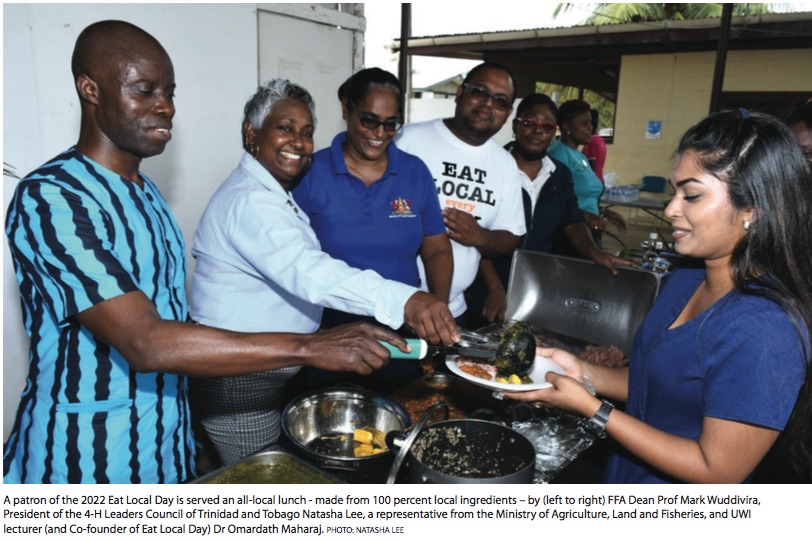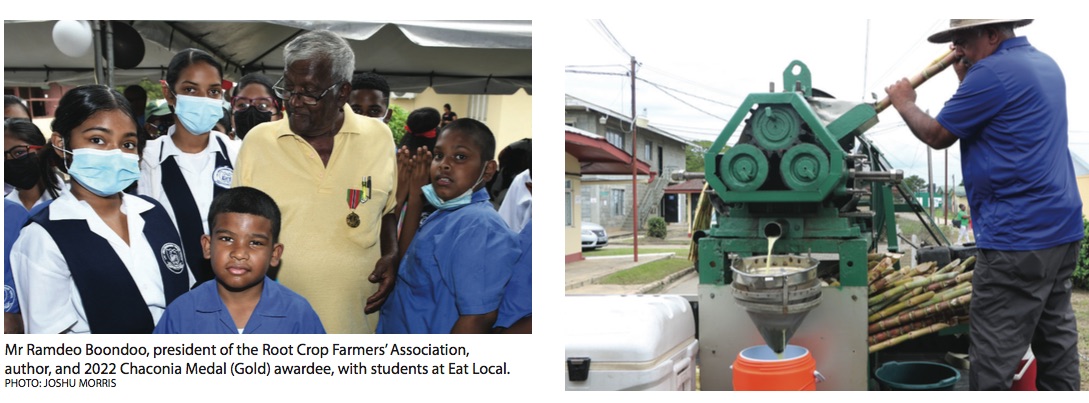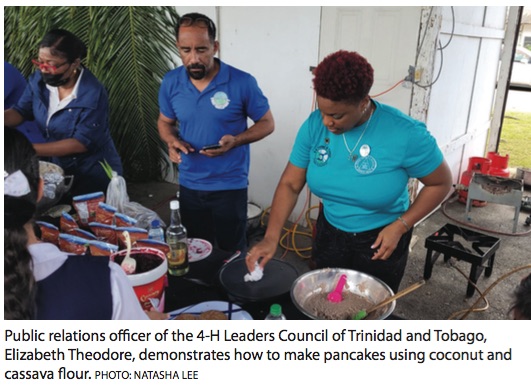Eat Local movement shapes a new, timely narrative on local foods
At a 2022 CARICOM Heads of Government meeting, leaders set a goal of reducing the Caribbean’s food import bill by 25 percent by 2025.

In December 2022, the University Field Station in Valsayn hosted the most recent edition of Eat Local Day, a partnership between The UWI; the 4-H Leaders Council of Trinidad and Tobago; the Ministry of Agriculture, Land and Fisheries; NAMDEVCO; the Agricultural Development Bank; the Field Naturalist Club; and the El Socorro Centre for Wildlife Conservation.
While the university has supported the event for the past several years, FFA Dean Prof Mark Wuddivira said it has now taken on a new meaning given CARICOM’s target to reduce food imports. “We continue to support different initiatives to ensure CARICOM’s 25 by 2025 target is attained,” he said. “One of the most effective ways to get to the target and cut down on the region’s food import bills is for us to get people to start thinking about local produce.”
The FFA Dean wants to educate the general public on the diversity of local crops and their benefits.
With Trinidad and Tobago’s food import bill at an estimated TT $6 billion per year, he reminds people that the region’s dependency on food imports is the result of current generations developing a preference for foreign foods.
Prof Wuddivira added that the movement’s focus on positively shaping the attitudes of children towards local foods is important as it serves the country well when they become future consumers.
UWI agribusiness and entrepreneurship lecturer Dr Omardath Maharaj, one of the movement’s founders, said outreach to children is crucial because they are an impressionable audience:
“This effort started in the field of farmers, and we have now taken the movement over the years to different schools. The conversations with the children involve growing things in their school gardens and bringing them to the table. But, we have also sought to get the parents involved as well.”

Even before being elected president of the 4-H Leaders Council of Trinidad and Tobago in 2016, Natasha Lee was actively involved in the movement. As a teacher, Lee has been taking her students to eat local events since its inception in 2012.
But since becoming president of the council, she has sought to expand the local movement in more schools.
“The idea of having the students involved is so that they can see where their food is coming from and appreciate fresh foods as opposed to imported produce which is usually processed in some way,” she explained.
Lee also wants to be an example of what she promotes. She has taken on the role of chef at Eat Local Days, and curates a menu of dishes made almost entirely out of locally grown goods. She plans to publish a cookbook:
“I really want to create an all-local cookbook. When you look at some of these existing cookbooks, they claim to be local, but when they use simple ingredients like regular flour – as opposed to locally produced root crop flour – it defeats the purpose.”
While there are a lot of moving parts to achieving national food security, FFA Senior Crop Science lecturer Dr Wendy-Ann Isaac said consumption patterns at the household level are important. Apart from eating local, she stressed the importance of people growing local crops to reduce their food vulnerability.

Isaac recently taught a 10-week course with homeowners where they learnt how to create home gardens, properly manage the spaces, and make organic pesticides and fertilisers.
Isaac said, “As a faculty, we continue to open ourselves up to the public, and we have been doing a number of different things including new programmes.
“In September 2022, we launched a Master’s degree in Food Security, and we have a lot of people from different stakeholder groups participating in that programme.
“We also have a very good programme of value addition for food and nutrition security.” Apart from all this, the FFA is in talks with national and regional agriculture ministers and their permanent secretaries to find solutions to food and nutrition security.
Overtime, these talks are expected to materialise into a drive to develop sustainable products and services which complement the goal to reduce the region's food import bill.